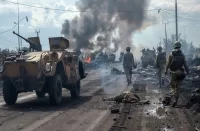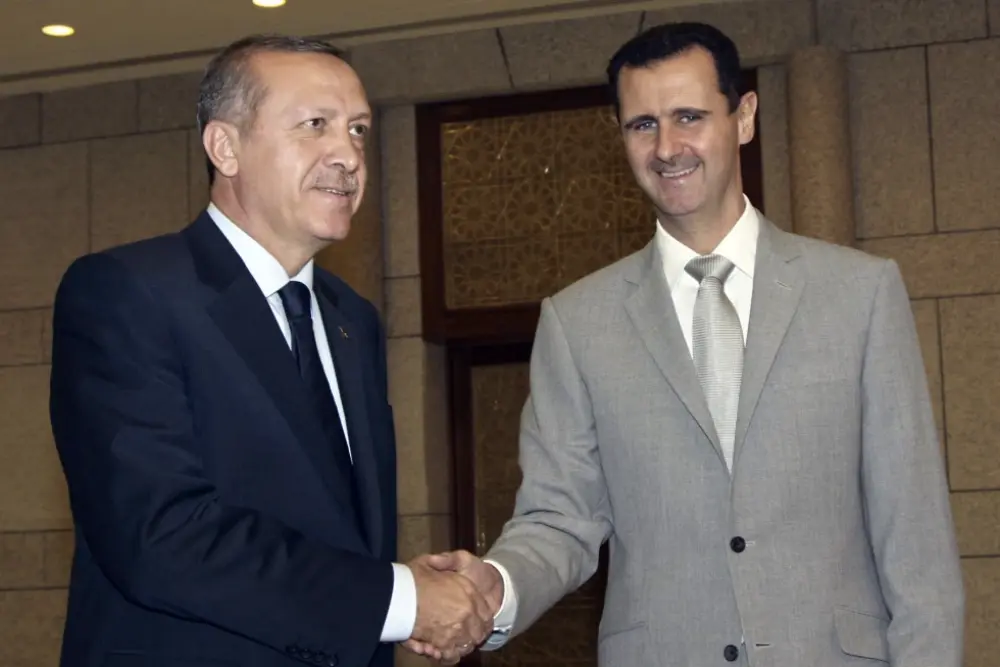It is no secret, the relations between Ankara and Damascus have gradually hit the bottom since the “Arab Spring” reached Syria in 2011. This vivid deterioration in the political relation between the two neighboring countries has been one of its kind since Syria was established as a state in 1946. Despite all shared interests, borders, social and historical values, the two countries transformed their very-close friendly relationship into a hostile and bitter one, in a matter of few months only.
I won’t dive into the details of the hostility between Ankara and Damascus during the past 12 years, but I’ll rather explain the reasons behind the must-take decision for the very soon reconciliation summit between the two states. When the “Arab Spring” reached Syria in 2011, Turkey decided to stand by the “Armed Opposition” fighting the Syrian government, while making sure to support it with arms and all needed logistics. This Turkish decision has created a new reality in the Middle East, as both countries suddenly turned from being “good friends” to becoming a very hostile adversaries for many years to come.
With Moscow powerfully entering the Syrian scene in 2015, the Turkish calculations proved to be not very accurate and overestimating. This exact development disappointed the Turks and surprised them as well, who had been planning to defeat the government of Damascus and impose their desires on the political future of Syria. Over a night, Ankara had seen itself battling not only the Syrian army and its affiliates, but also the mighty Russian army which has become an essential and effective player in the Syrian civil war.
This new reality has made Ankara to gradually rethink its decision in supporting the “Armed Opposition” and destabilizing Syria. The Turks realized that continuing to fight the Syrian government -through local proxies- would not only deepen the hostilities with an important neighboring country but would also worsen the relations with Syria’s biggest allies, Russia and Iran. This is of course not to mention the new “threat” rising in northern east of Syria, with the Kurds establishing their autonomous region directly supported by the US and its army. Thus, the year of 2015 could be described as the year Ankara and Damascus took the first step towards a full reconciliation.
With the defeat of ISIS in 2018, the Kurds in Northern Syria got even stronger, they managed to develop their forces into a “regular army” – with the help of the US and other Western powers. They also managed to establish an autonomous government body, not linked by any way to Damascus. Moreover, the US has been enhancing its military existence in the vast areas which the Kurds control – A development that would limit the reactive actions of Turkey against the Kurds and their paramilitary forces, “Syrian Democratic Forces”.
At the current stage, Turkey sees the “Kurdish separatists” in North-East Syria a far more challenging threat in comparison to its old adversary, the Syrian government. This is mainly because the Syrian-Kurds are linked to the Turkish-Kurds fighting the Turkish army for many many years and also calling for the establishment of a “National Homeland” for Kurds in the Middle East – similar to the Homelands of Arabs, Turks, or Persians. Turkey officially considers the “Syrian Democratic Forces” (SDF) an affiliate of their “bigger brother” in Turkey, the Kurdistan Workers Party. Ankara also had officially listed both as terrorist organizations, therefore, it prepared the legal and ideological environment for fighting the SDF in Syria.
Constructing on the above, Damascus and Ankara have a sole interest in containing the “Kurdish Separatist Threat” in Syria, especially that both the countries are home for millions of Kurds living for hundreds of years with their Arab nationals. In other words, a stronger Kurdish autonomous power in Syria would definitely push the Kurds of Turkey to follow the same path – or at least to generate a big wave of protests in big Turkish cities and towns, a development that would destabilize the Turkish internal affairs and probably threat the existence of the Turkish state as we know it today.
In addition to the previous factors, Ankara would like to find a permanent solution to the crisis of refugees living inside of Turkey or in refugee camps near its borders. By today, Turkey has received over 3.6 million Syrian refugees since the crisis initially hit Syria in 2011. This mighty number of refugees does not only pressure the Turkish economy, but it also creates tensions with the Turkish nationals themselves whom the majority of them has been claiming that “Syrians are sharing the financial benefits that belongs to Turks only”. Thus, we recently witness a rising wave of anti-immigrants movements in Turkey, some of them end in violence and aggression against Syrians, their properties and their businesses inside of Turkey.
To conclude, the reconciliation between Ankara and Damascus has been long awaited by both and by others in the region. The previous factors are the most urging ones for a warmer relations, however other important factors could be added to the list. Apparently, the more Ankara and Damascus postpone the reconciliation the more challenging factors will appear for both. This is why the pace of rapprochement between the two has been speeding up in the last few weeks and this is why the upcoming summit between President Assad and President Erdogan will be sooner than later.
















Comments